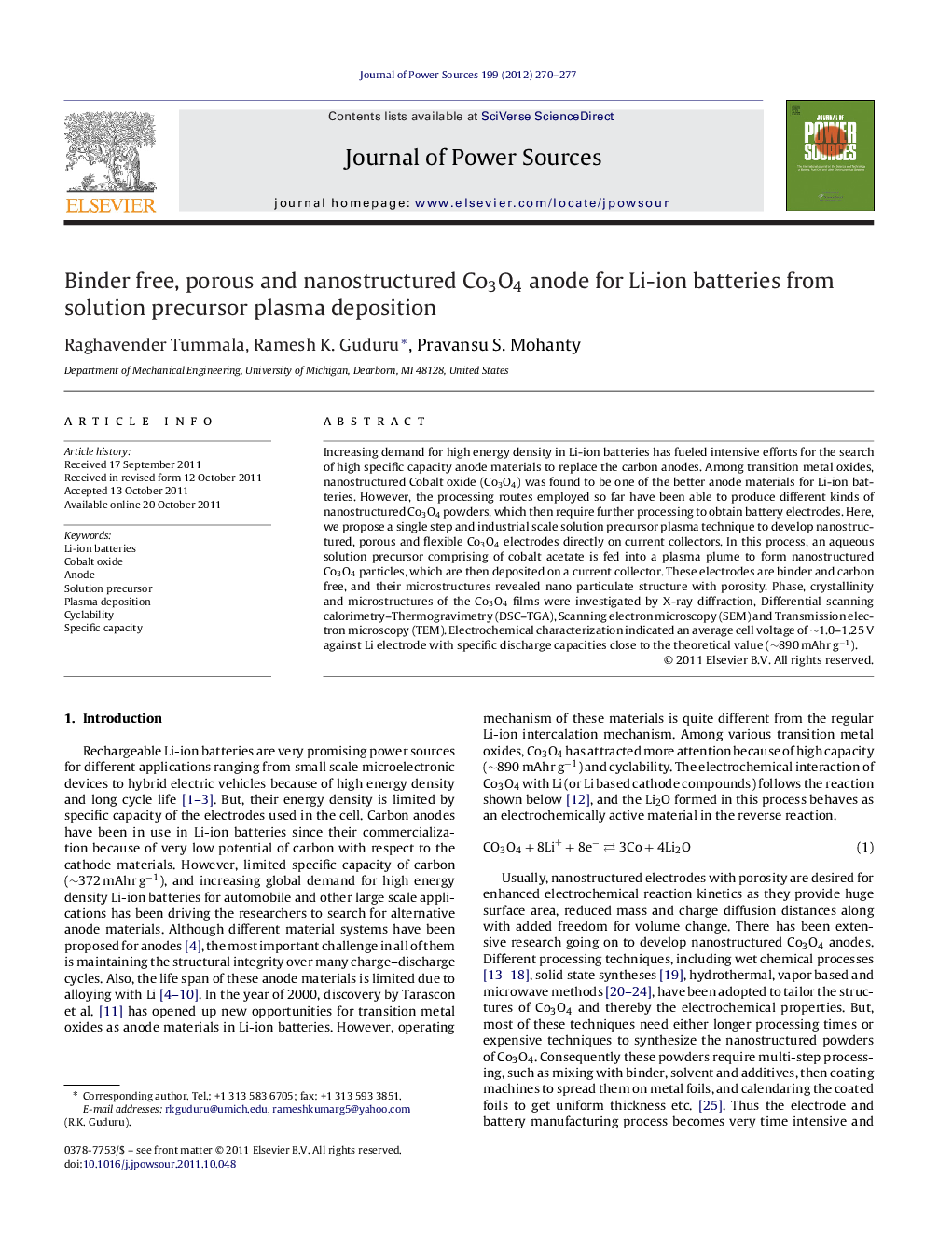| Article ID | Journal | Published Year | Pages | File Type |
|---|---|---|---|---|
| 1284621 | Journal of Power Sources | 2012 | 8 Pages |
Increasing demand for high energy density in Li-ion batteries has fueled intensive efforts for the search of high specific capacity anode materials to replace the carbon anodes. Among transition metal oxides, nanostructured Cobalt oxide (Co3O4) was found to be one of the better anode materials for Li-ion batteries. However, the processing routes employed so far have been able to produce different kinds of nanostructured Co3O4 powders, which then require further processing to obtain battery electrodes. Here, we propose a single step and industrial scale solution precursor plasma technique to develop nanostructured, porous and flexible Co3O4 electrodes directly on current collectors. In this process, an aqueous solution precursor comprising of cobalt acetate is fed into a plasma plume to form nanostructured Co3O4 particles, which are then deposited on a current collector. These electrodes are binder and carbon free, and their microstructures revealed nano particulate structure with porosity. Phase, crystallinity and microstructures of the Co3O4 films were investigated by X-ray diffraction, Differential scanning calorimetry–Thermogravimetry (DSC–TGA), Scanning electron microscopy (SEM) and Transmission electron microscopy (TEM). Electrochemical characterization indicated an average cell voltage of ∼1.0–1.25 V against Li electrode with specific discharge capacities close to the theoretical value (∼890 mAhr g−1).
► Nanostructured and porous Co3O4 anodes for high energy density Li-ion batteries. ► Flexible and binder free electrodes for high temperature battery applications. ► High capacity anodes developed, for the first time, by plasma spray process. ► Rapid processing of anodes in a single step process using industrial scale technology.
